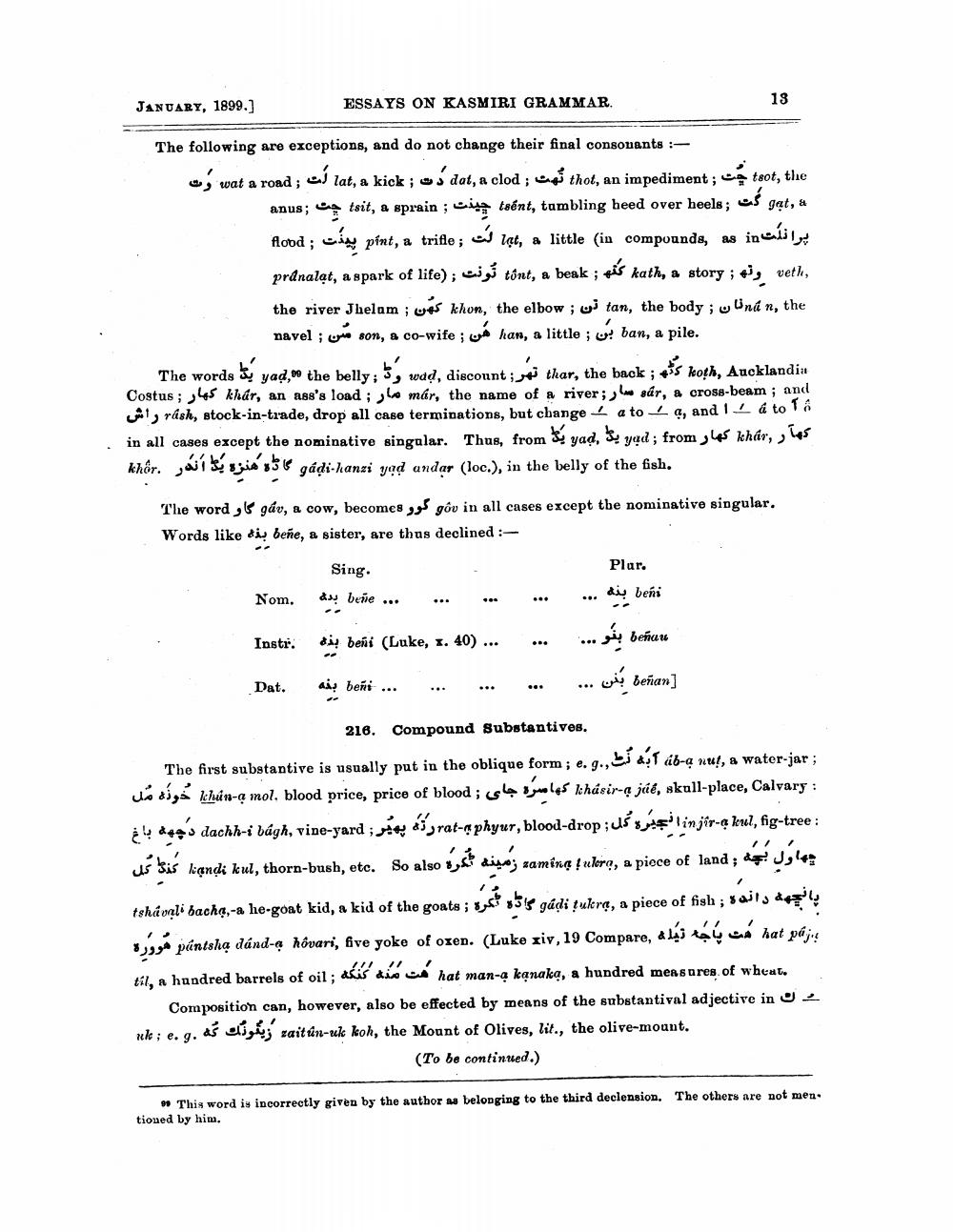________________
JANUARY, 1899.]
ESSAYS ON KASMIRI GRAMMAR
13
The following are exceptions, and do not change their final consonants :- wat a road ; í lat, a kick; wódat, a clod ;sf thot, an impediment ; atsot, the
anus; e tsit, a sprain ; wing tsent, tambling heed over heels ; os gat, a flodd; cán pint, a trifle ; c ląt, a little (in compounds, as incisi pranaląt, a spark of life); jg tồnt, a beak ; tús kath, a story ; *, veth, the river Jhelam ; ut khon, the elbow; w tan, the body; w Uná n, the navel; una son, a co-wife; han, a little ; ban, a pile.
The words & yad, the belly; 3, wd, discount ; thar, the back; is koth, Aucklandia Costus; 45 khar, an ass's load; lo már, the name of a river; sár, a cross-beam ; and
lyrish, stock-in-trade, drop all case terminations, but change a to 4, and 1 to 16 in all cases except the nominative singular. Thus, from 3 yad, 3. yad; from glas khár, , khôr. wis s's gádi-hanzi yad andar (loc.), in the belly of the fish.
The word , gav, a cow, becomes yes gôv in all cases except the nominative singular. Words like di, beñe, a sister, are thus declined :
Sing.
Nom. Instř. Dat.
Plar. beñe ... ... ... ... ... di beni die beñi (Luke, z. 40)... ... ... Jáy beñiau ai? beñi ... ... ... ... ... was beñan]
218. Compound Substantives.
The first substantive is usually put in the oblique form; e.g., bid. ab-a uut, a water-jar; Jodige khun-a mol. blood price, price of blood; s ynelas khasir-a jáé, skull-place, Calvary : 14 dag's dachh-i vágħ, vine-yard ; stes díjrat-mphyur, blood-drop ;us suislinjir-ą kul, fig-tree : us bus kandi kul, thorn-bush, etc. So also byt aiva; zaminą dukro, a piece of land ; dan Jokes tshávali bacha,-a he-goat kid, a kid of the goats ; $55 gadi tukra, a piece of fish ; Sails del Byoga pantsha dánd-hôvari, five yoko of oxen. (Luke xiv, 19 Compare, a týi tay có hat váj? til, a hundred barrels of oil; akis dis hat man-a kanaka, a hundred measures of wheat,
Composition can, however, also be effected by means of the substantival adjective in , uk; e. g. as eligij zaitun-uk koh, the Mount of Olives, lit., the olive-mount.
(To be continued.)
" This word is incorrectly given by the author as belonging to the third declension. The others are not men. tioned by him.




